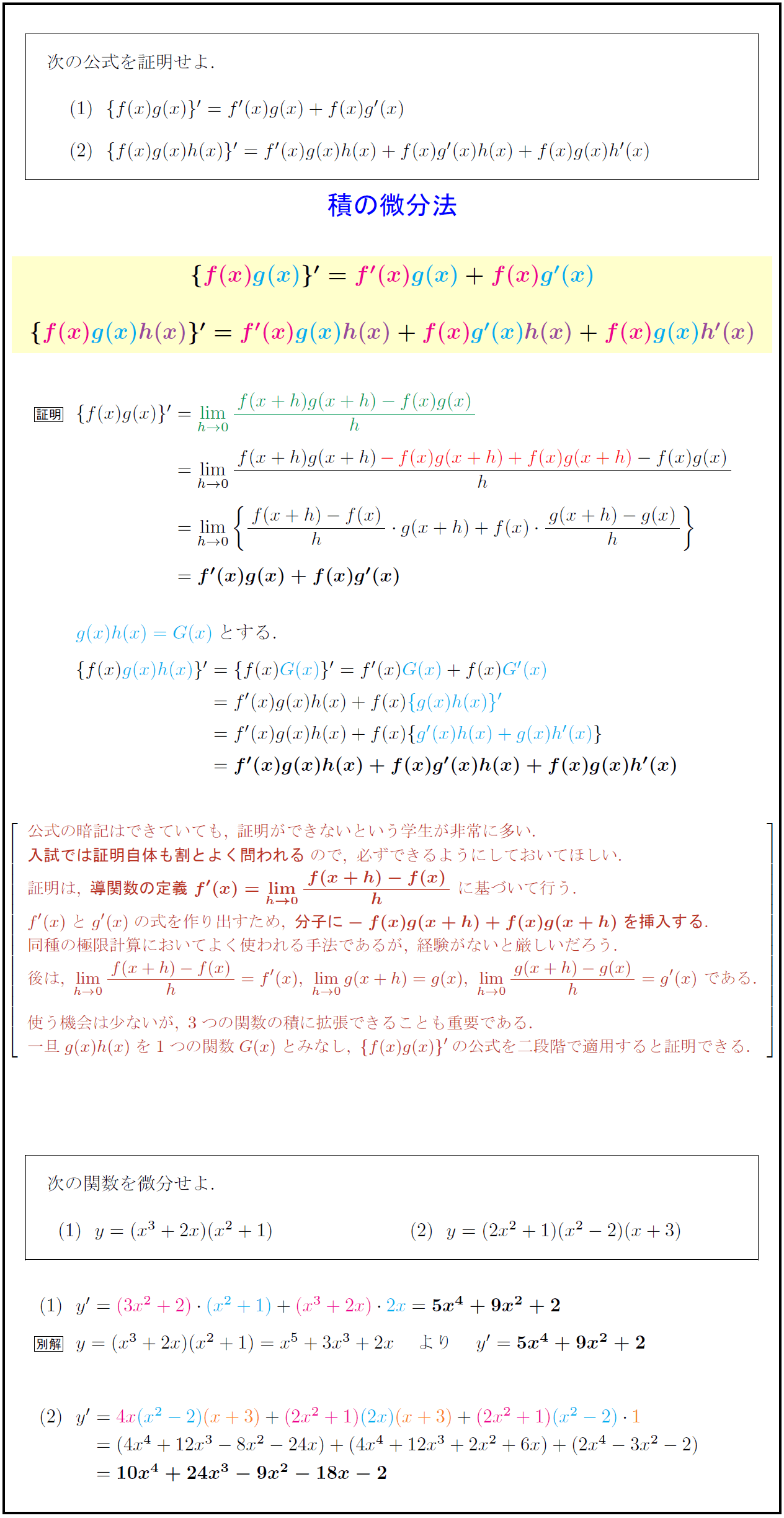
次の公式を証明せよ. ${f(x)g(x)}’=f'(x)g(x)+f(x)g'(x)$ ${f(x)g(x)h(x)}’=f'(x)g(x)h(x)+f(x)g'(x)h(x)+f(x)g(x)h'(x)$ {積の微分法 dy}{c} $f(x)}g(x)’=f'(x)}g(x)}+f(x)}g'(x)$} .98}{$f(x)}g(x)}h(x)’=f'(x)}g(x)}h(x)}+f(x)}g'(x)}h(x)}+f(x)}g(x)}h'(x)$ {f(x+h)g(x+h)-f(x)g(x)}{h$ { }$f(x)g(x)}’}=lim[h→0]{f(x+h)g(x+h)-f(x)g(x+h)+f(x)g(x+h)}-f(x)g(x)}{h}$ { }$f(x)g(x)}’}=lim[h→0]f(x+h)-f(x)}{h} g(x+h)+f(x){g(x+h)-g(x)}{h$ { }$f(x)g(x)}’}={f'(x)g(x)+f(x)g'(x)}$ { }$g(x)h(x)=G(x)}$とする. { }${f(x)g(x)h(x)’={f(x)G(x)’=f'(x)G(x)}+f(x)G'(x)}$ { }$f(x)g(x)h(x)}’}=f'(x)g(x)h(x)+f(x){g(x)h(x)}’}$ { }$f(x)g(x)h(x)}’}=f'(x)g(x)h(x)+f(x){g'(x)h(x)+g(x)h'(x)$ { }$f(x)g(x)h(x)}’}={f'(x)g(x)h(x)+f(x)g'(x)h(x)+f(x)g(x)h'(x)}$ 公式の暗記はできていても,\ 証明ができないという学生が非常に多い. {入試では証明自体も割とよく問われる}ので,\ 必ずできるようにしておいてほしい. 証明は,\ {導関数の定義\ f'(x)=lim[h→0]{f(x+h)-f(x)}{h\ に基づいて行う. f'(x)とg'(x)の式を作り出すため,\ {分子に-f(x)g(x+h)+f(x)g(x+h)を挿入する}. 同種の極限計算においてよく使われる手法であるが,\ 経験がないと厳しいだろう. 後は,\ lim[h→0]{f(x+h)-f(x)}{h}=f'(x),\ lim[h→0]g(x+h)=g(x),\ lim[h→0]{g(x+h)-g(x)}{h}=g'(x)\ である. 使う機会は少ないが,\ 3つの関数の積に拡張できることも重要である. 一旦g(x)h(x)を1つの関数G(x)とみなし,\ {f(x)g(x)}’の公式を二段階で適用すると証明できる.

